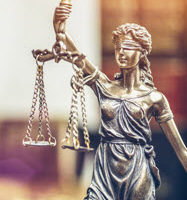How Can We Weigh Civil Rights With Religious Rights?

We’ve previously discussed the importance of one particular civil rights case that was recently decided by the U.S. Supreme Court: Unfortunately, on June 4th, the Court made a decision that is arguably antithetical to the protection of civil rights when it decided that a cake shop owner who refused to bake a cake for a homosexual couple had his free exercise clause rights denied when the state civil rights commission decided that he engaged in discrimination.
The U.S.—like other countries—has a dark history when it comes to discrimination; whether that involves discrimination based on skin color, gender, religion, etc. Below, we discuss this issue of balancing “religious” versus “civil” rights, and why civil rights should arguably outweigh religious rights.
What Equal Protection Means
As Justice Ginsburg wrote in her dissenting opinion in this case, religious (and philosophical, for that matter) objections do not allow business owners and others to deny protected individuals equal access to goods and services under public accommodations laws. States can protect homosexual individuals, just as they can protect other classes of people, in ensuring that products and services are offered on the same terms and conditions as they are to other members of the public. Business owners placing signs up indicating that they will not provide goods or services to homosexual individuals due to religious or other reasons are violating the law, and subject these individuals to “indignities” when they seek goods and services in an open market.
In this case, the majority concluded that the cake shop owner’s religious objection was not properly considered with the “neutrality that the Free Exercise Clause requires,” and the state civil rights commission exhibited “hostility” towards the owner’s religion. However, Ginsburg pointed out that there was no evidence of hostility to religion that the Court has previously required in order to find a free-exercise violation.
Distinguishing Free Exercise from Outright Discrimination
Of particular importance to Ginsburg was the fact that this couple simply requested a wedding cake, and made no mention of any messaging or anything else being included on the cake which would distinguish it (in terms of messaging, speech, religion, etc.) from any other cake that would be sold by the business owner. In other words, in this case, the business owner would not sell to the couple “for no reason other than their sexual orientation.” The state in this case—as in many other states—prohibits precisely the discrimination that this couple encountered.
Florida Civil Rights Attorneys
Treating people differently—and denying them goods or services—based on sexual orientation is illegal. If your civil rights have been violated, contact us today at the Baez Law Firm to find out how we can help.
Resources:
scotusblog.com/case-files/cases/masterpiece-cakeshop-ltd-v-colorado-civil-rights-commn/
duluthnewstribune.com/opinion/letters/4459627-readers-view-civil-rights-must-outweigh-religious-rights




















